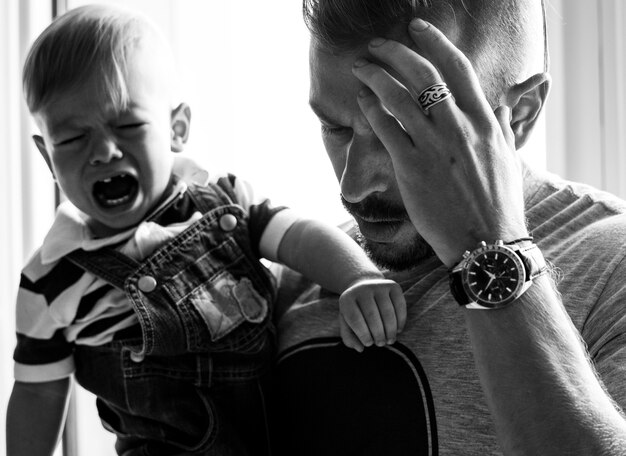Fatherhood is often romanticized as a journey filled with joy, pride, and the satisfaction of nurturing a child. However, the mental health challenges faced by fathers often go unacknowledged, leaving many men to struggle in silence. Among these challenges, postpartum depression in dads, the complexities of navigating fatherhood while dealing with personal mental health struggles, and the societal pressure to "provide and protect" are critical issues that deserve more attention.
Postpartum Depression in Dads: An Overlooked Issue
While postpartum depression is commonly associated with mothers, fathers are also vulnerable to experiencing this condition. Studies indicate that up to 10% of fathers suffer from postpartum depression, yet their struggles are often overlooked due to societal perceptions that place emotional burdens primarily on mothers. For fathers, postpartum depression can stem from sleep deprivation, feelings of inadequacy, and the dramatic lifestyle changes that accompany the arrival of a child. The lack of awareness and dialogue around paternal postpartum depression not only isolates fathers but also leaves families without the support they need. It is essential to normalize discussions about paternal mental health and to ensure that fathers have access to screening and treatment options.
Navigating Fatherhood with Personal Mental Health Struggles
For fathers already grappling with mental health issues such as anxiety or depression, the challenges of parenting can exacerbate these conditions. The responsibilities of fatherhood often require men to set aside their own needs, which can lead to burnout or a worsening of pre-existing mental health concerns. Fathers may also feel hesitant to seek help due to fear of judgment or societal expectations to "man up." The stigma surrounding men's mental health can prevent fathers from reaching out, compounding their struggles and potentially impacting their ability to connect with their children. Breaking this cycle requires creating safe spaces for fathers to share their experiences and access professional support without fear of stigma.
The Pressure to "Provide and Protect"
Traditional gender roles often place fathers in the role of breadwinner and protector, creating immense pressure to meet these expectations. This "provider role" can lead to chronic stress, feelings of inadequacy, and a diminished sense of self-worth if fathers perceive themselves as falling short. The societal narrative that ties a father’s value to his financial or protective contributions overlooks the emotional and relational aspects of parenting. Fathers who feel overwhelmed by these pressures may struggle to engage fully with their families, leading to further isolation. It is crucial to redefine what it means to be a father, emphasizing emotional presence and collaboration over outdated notions of masculinity.
Toward a Healthier Vision of Fatherhood
Addressing mental health in fatherhood requires systemic change and a cultural shift in how we perceive paternal roles. Healthcare providers should incorporate mental health screenings for fathers during the perinatal period, while communities and workplaces can foster environments that support men in seeking help. Fathers need access to resources, peer support groups, and education that validates their experiences and empowers them to prioritize their well-being. By acknowledging the mental health challenges fathers face, society can help create a more inclusive and compassionate vision of fatherhood—one where men feel supported in being their authentic, vulnerable, and resilient selves.

